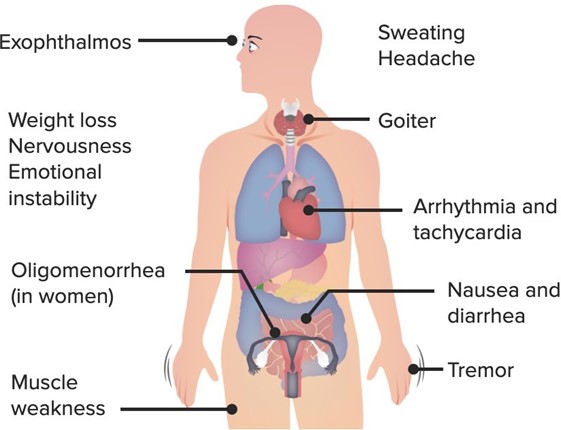A nurse is reinforcing teaching with a client who has primary open-angle glaucoma and a new prescription for timolol eye drops. Which of the following statements indicates an understanding of the teaching?
"I should take a zinc supplement while taking this medication."
"This medication will dilate my eyes."
"I should check my heart rate while taking this medication."
"This medication will darken the color of my eyes."
The Correct Answer is C
Timolol is a beta-blocker medication that is commonly prescribed for the treatment of glaucoma. It works by reducing the production of aqueous humor in the eye, thereby decreasing intraocular pressure. However, timolol can also be systemically absorbed, which may lead to cardiovascular side effects.
Checking the heart rate while taking timolol is important because beta-blockers can potentially lower heart rate and blood pressure. It is essential to monitor for any changes in heart rate or any other cardiovascular symptoms while using timolol eye drops.
Nursing Test Bank
Naxlex Comprehensive Predictor Exams
Related Questions
Correct Answer is B
Explanation
It is important to provide choices for the client, but limit them to two or three options to prevent confusion and decision-making difficulties.
Use visual cues to assist the client with locating the bathroom, such as pictures or color-coded signs instead of written signs.
Avoid using confrontation to manage the client's behavior, as it can increase agitation and aggression. Instead, use redirection and positive reinforcement.
Provide a calm and non-stimulating environment for the client, as overstimulation can lead to confusion and agitation.
Correct Answer is C
Explanation
Thyrotoxicosis refers to a state of excess thyroid hormone in the body, which can occur as a result of excessive levothyroxine dosage or other causes. Nervousness is a common symptom of thyrotoxicosis, characterized by an excessive or uncontrollable feeling of anxiety or restlessness. It is important for the client to report this symptom to the healthcare provider because it may indicate an imbalance in thyroid hormone levels and may require adjustment of the medication dosage.

Polyuria, which refers to increased urination, is not a specific symptom of thyrotoxicosis. It can occur due to various factors unrelated to thyroid function.
Pruritus, or itching, is not a common symptom of thyrotoxicosis. It may be associated with other conditions or causes.
Cough is not typically associated with thyrotoxicosis. It is more commonly related to respiratory or pulmonary conditions rather than thyroid dysfunction.
Whether you are a student looking to ace your exams or a practicing nurse seeking to enhance your expertise , our nursing education contents will empower you with the confidence and competence to make a difference in the lives of patients and become a respected leader in the healthcare field.
Visit Naxlex, invest in your future and unlock endless possibilities with our unparalleled nursing education contents today
Report Wrong Answer on the Current Question
Do you disagree with the answer? If yes, what is your expected answer? Explain.
Kindly be descriptive with the issue you are facing.
